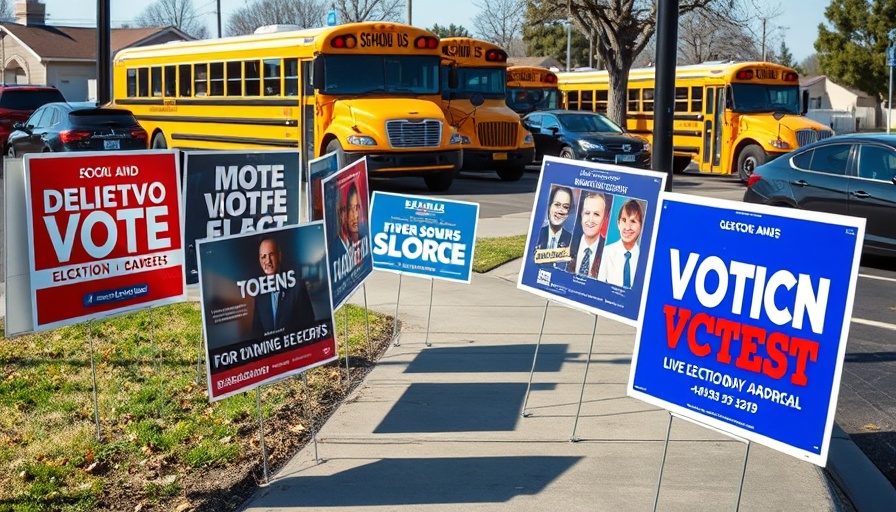
Education Takes Center Stage in San Antonio Elections
In an unexpected twist, education has become a pivotal issue in San Antonio's upcoming city elections. With statewide budgetary challenges and shifting policies regarding public education, local council members and mayoral candidates are stepping up to address concerns that are usually reserved for state lawmakers.
The Growing Anxiety Over Education
As Texas' public education system faces a multitude of challenges—including significant cuts at the U.S. Department of Education and Gov. Greg Abbott's newly signed voucher program—the anxiety among residents is palpable. Many citizens are questioning how these changes will affect their children’s future. Child advocates stress that with state funding lagging and the introduction of school vouchers, local government must step in now more than ever.
Empowering Local Leaders to Make a Difference
Despite their minimal influence over local school districts, San Antonio's city leaders are finding themselves at the forefront of education advocacy. Organizations like UP Partnership are pushing candidates to prioritize youth programs and after-school education. “While these state-level decisions impact education, local leaders can take actionable steps right here in San Antonio,” says Emily Calderón Galdeano, the interim CEO of UP Partnership.
Candidate Responses to Education Concerns
In the lead-up to the June 7 runoff elections, both mayoral candidates, Gina Ortiz Jones and Rolando Pablos, have recognized the importance of addressing educational gaps faced by the community. Ortiz Jones emphasized the necessity of enhancing the city’s free Pre-K program, asserting it’s crucial for setting children up for future success. Similarly, Pablos, who brings an economic development perspective, advocates for better investment in early childhood education, indicating a shift from traditional conservative viewpoints.
The Push for Enhanced Educational Funding
Local advocacy has intensified, with efforts aimed at ensuring that more city revenue is allocated to children's programs. Last year, UP Partnership proposed an initiative to root 20% of additional city revenue for youth initiatives—a proposal that gained traction but ultimately did not make it to voters. With increased attention on education, candidates are now more receptive to such ideas, showcasing a shift in dialogue.
Future Educational Investments: What’s Next?
The future landscape of education in San Antonio could shift dramatically depending on election outcomes. Candidates are being tasked with more than just campaigning; they are increasingly being judged on their proposals regarding early childhood education and workforce readiness programs. A detailed examination of their plans could very well influence voter behavior.
Engaging the Community: Action Items for Voters
Voters are reminded that they hold the power to influence significant changes by reviewing candidates’ platforms and voicing concerns at community forums. As personal stakes in public education rise, the electorate is encouraged to engage actively with candidates on these vital issues.
This year’s elections in San Antonio highlight how local narratives are intertwined with statewide policy shifts. With education at the forefront, city leaders and candidates may yet find their paths shaped by the desires and demands of their constituents.
 Add Row
Add Row  Add
Add 




Write A Comment